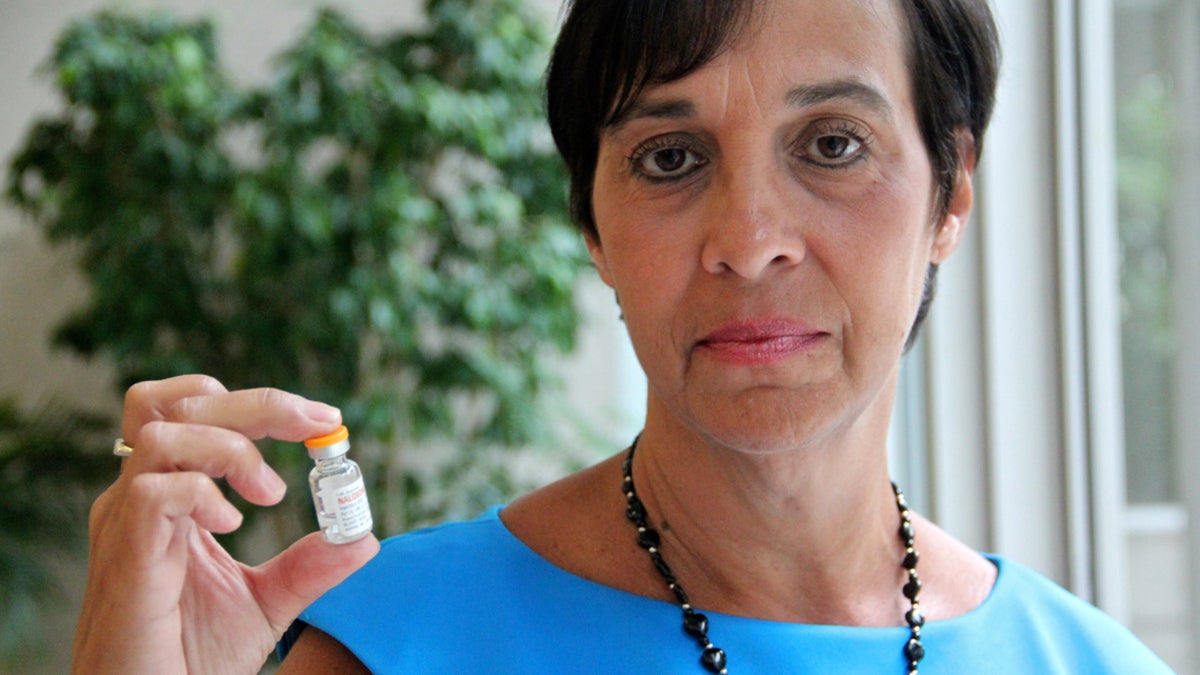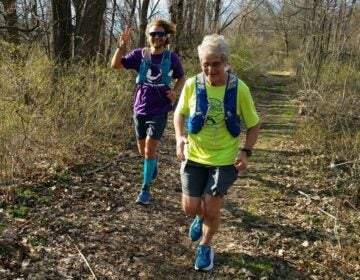Year after N.J. allows public to carry Narcan, advocates say doctors and pharmacies fall short
Listen
Patty DiRenzo now carries a vial of naloxone, a medication that can halt a heroin overdose, with her at all times. She believes it could have saved her son, who overdosed in 2010. She wants to know why more doctors in New Jersey aren't prescribing it. (Emma Lee/WHYY)
Camden police halted five overdoses in the past three days alone using naloxone, commonly known as Narcan. But advocates including Patty DiRenzo say other groups authorized to prescribe or administer the drug — such as doctors and family members of users– aren’t able to do enough.
DiRenzo, who lost her son Sal to a heroin overdose in 2010, said she thinks not enough doctors know they can prescribe naloxone in the first place. She started out by asking her family doctor.
“I initially asked my doctor about a month ago if she would prescribe me naloxone and she said, ‘Absolutely not. I would never do that,'” said DiRenzo. “After I explained to her the Overdose Prevention Act, how naloxone’s part of it, how there’s no liability on the physician’s part, she looked at me and she said, ‘I would absolutely prescribe it.'”
Gov. Chris Christie signed the Overdose Prevention Act into law in 2013. It provides wider prescriptive power to doctors and shields them – as well as bystanders and family members who try to save someone who is overdosing — from lawsuits.
DiRenzo’s an advocate, so she didn’t stop at her family doctor. She also reached out to the New Jersey Academy of Family Physicians where Claudine Leone, head of government affairs, said they have made efforts to raise awareness.
“We have worked hard to get the word out [about the Overdose Prevention Act] to our members, through newsletters and email blasts,” said Leone. But, she said, she hasn’t heard about an increase in patient interest or prescriptions.
Other barriers to using Narcan
Even if you can get a prescription for naloxone, that doesn’t mean you’ll know how to use it.
The South Jersey AIDS Alliance is the only organization in the state doing public demonstrations through a $25,000 grant from the Drug Policy Alliance intended to train drug users to carry injectable naloxone.
“The grant was mainly written for those who come through our needle-exchange program, but once the public got word, we had several requests to come out and do trainings for parents who have children currently using or in recovery,” said Chief Operating Officer Georgett Watson.
Watson said staff from other organizations that work with drug users also asked for training. So far, they have trained 412 people to inject the drug in someone who is overdosing and given out 824 doses.
The state is planning to fund community training in four locations, Watson said.
The Division of Mental Health and Addiction Services confirmed by email that it will spend $50,000 in Camden, Atlantic, Ocean and Monmouth counties to train in the use of and distribute naloxone, in both injectable and nasal spray form.
DiRenzo and other advocates have yet another concern about the naloxone distribution chain: pharmacies. Watson and Leone both mentioned they knew supply could be a problem.
Calls to three different pharmacies in Camden, where police have averted 31 overdose deaths with naloxone since the beginning of May, found not one carried the drug.
WHYY is your source for fact-based, in-depth journalism and information. As a nonprofit organization, we rely on financial support from readers like you. Please give today.




